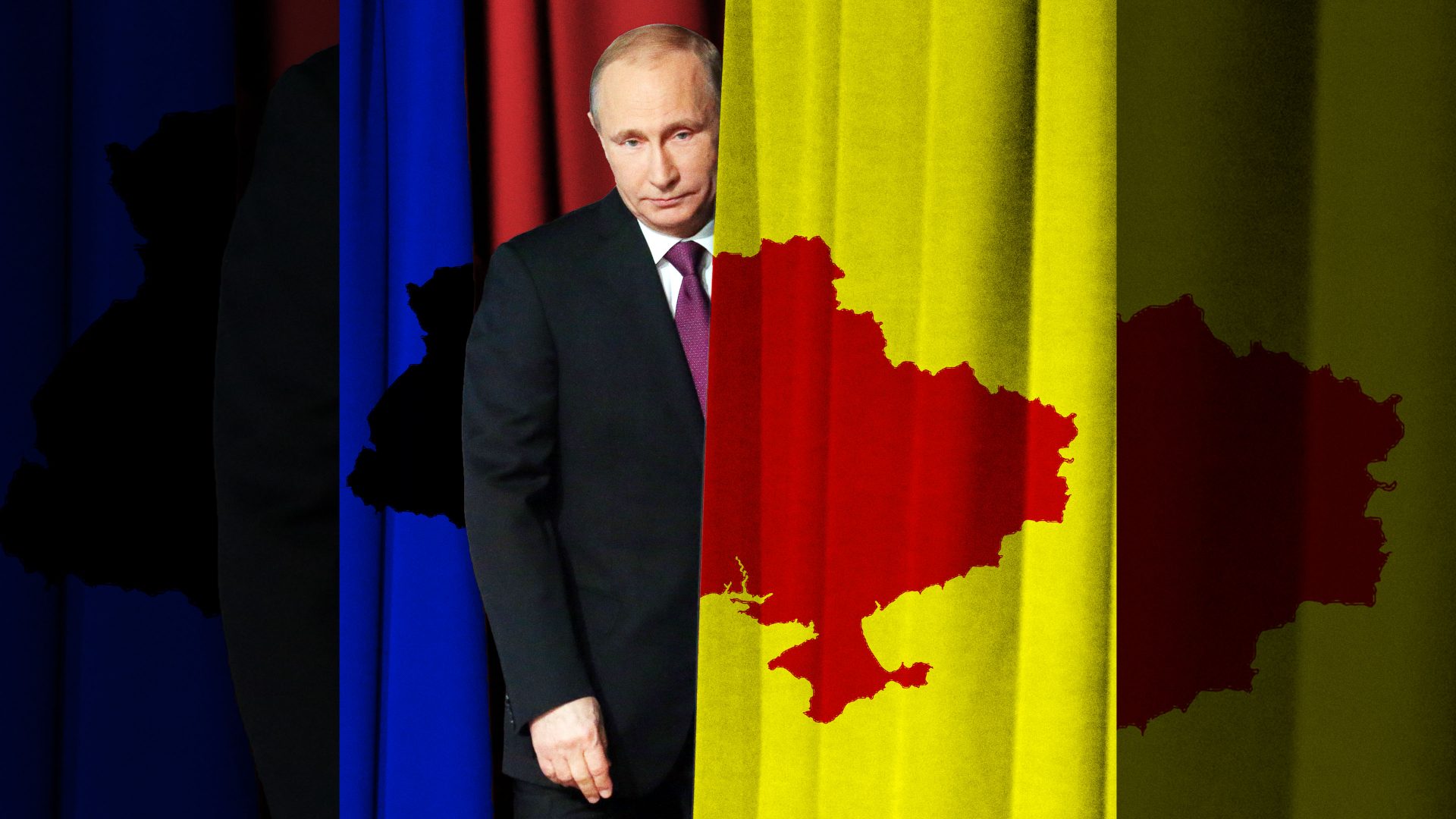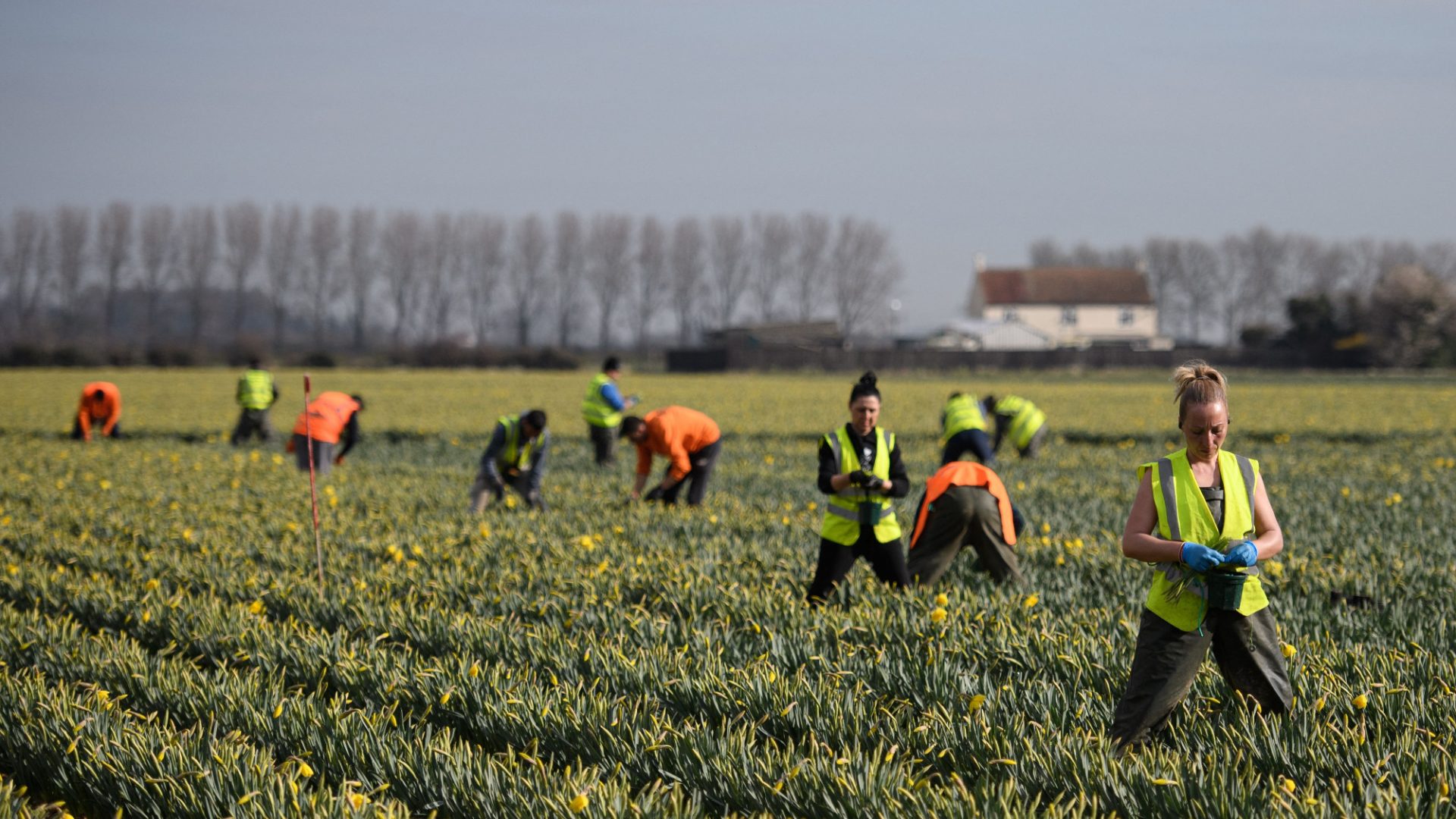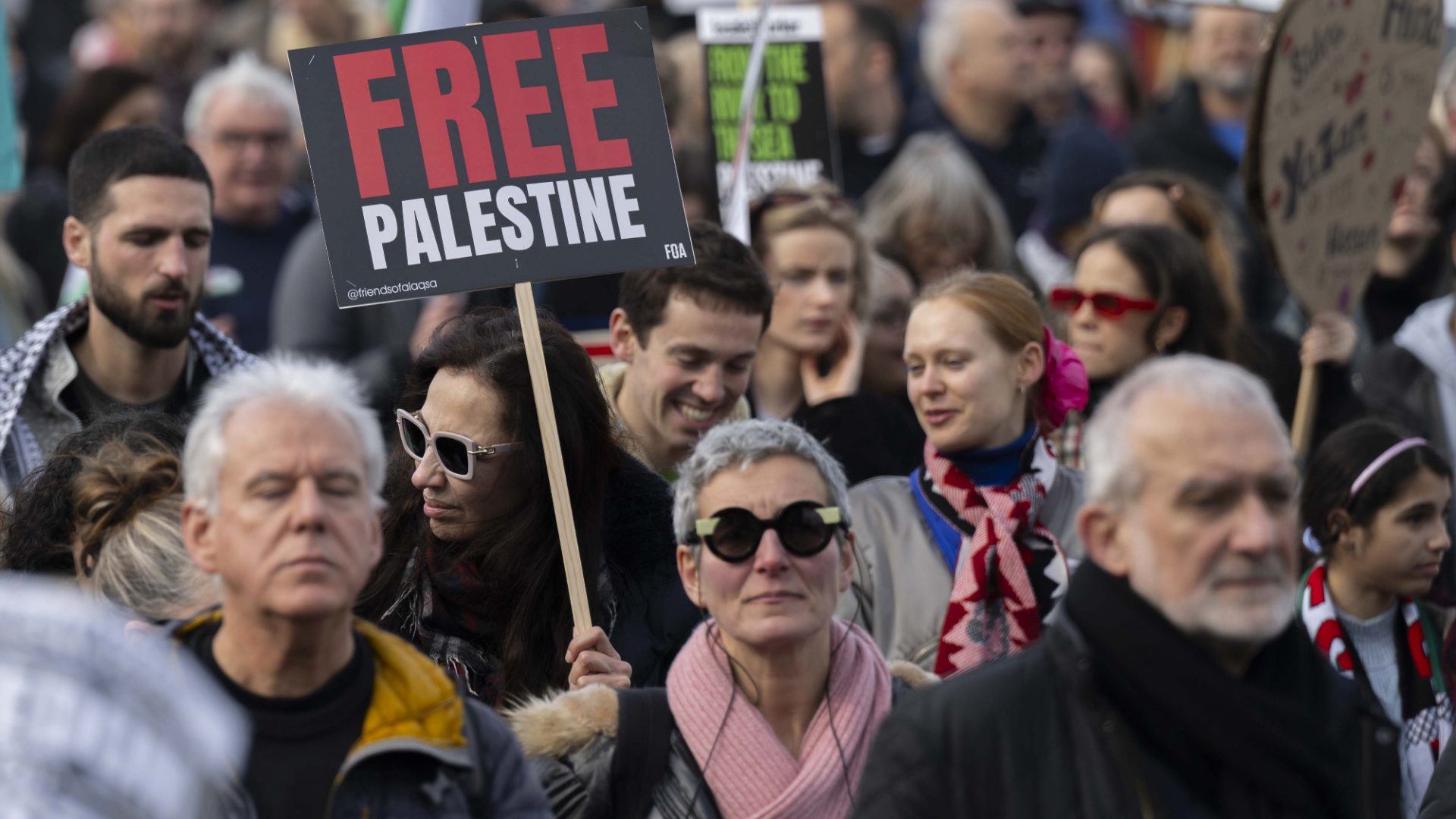Russia is having a general election. Everyone knows who’s going to win – Putin. It’s a foregone conclusion. But what if he also wins in Ukraine?
By failing to support Ukraine sufficiently – the charge Emmanuel Macron is currently laying at others in Europe – we in the west risk letting it happen. The consequences would be horrific.
Ukraine would, of course, be the first place to suffer after a Russian victory. Putin’s grotesque war crimes in places such as Bucha and Mariupol leave no doubt about what a wider occupation of Ukraine would involve.
The looting of everything that can be carried off and the destruction of anything that cannot be. Mass rape. The kidnapping of many more thousands of Ukrainian children. The imprisonment, torture and murder of everyone who opposes the Russian occupation in any way.
Putin’s atrocity archipelago in Ukraine would be administered by a puppet government installed by Moscow. Its purpose, along with stealing Ukraine’s economic assets and kicking back a hefty share to the Kremlin, would be to eliminate all traces of Ukraine’s culture and identity in order to prevent it ever resurfacing as a sovereign nation.
The brutality of Moscow’s purges would be all the more pronounced as it attempted to stamp out the inevitable and widespread Ukrainian guerilla resistance. This would be particularly strongly supported by Ukraine’s neighbours, such as Poland, Estonia, Latvia and Lithuania, who share its determination to never live under Russia’s murderous domination again.
Meanwhile, we would find ourselves watching these horrors unfold while knowing we could have stopped them from happening if only we had roused ourselves to do so.
We would also be left facing a wider war with Russia – one we would have to fight ourselves, rather than leaving the Ukrainians to do it for us. As a parent of military call-up-age kids, I find this terrifying.
Putin and his sidekicks have said all along that they see their war on Ukraine as a proxy battle with Nato and the west, and have openly threatened to attack Nato next. Putin’s record shows we should take his threats seriously and heed the words of Ukraine’s foreign minister, Dmytro Kuleba: “Every mile Russia advances in Ukraine is a mile closer it gets to you, your towns and your families.”
To understand why Putin is likely to launch further attacks on Europe if he is not stopped in Ukraine, we must recognise who he is and what motivates him.
Today’s Russia does not have a normal government or a normal political culture. In reality, Putin and his cronies are more like a mafia gang formed by rogue KGB secret police who have managed to seize control.
As with any organised crime boss, Putin knows he cannot afford to lose power. If he did, the many crimes he has committed and the vast amounts of money he has stolen from the Russian people would probably lead to him being jailed or killed.
This fear drives Putin to eliminate anyone who challenges him. Being a vicious thug, that often means murdering them, as we have seen yet again with the killing of Alexei Navalny, who bravely exposed Putin’s criminality.
The same motivation explains Russia’s invasion of Ukraine. Ignore all the nonsense the Putin regime spouts about ancient history and the imaginary “threats” from Nato. What really scared Putin was the Ukrainian people throwing out their mob-connected, Kremlin-directed president, Viktor Yanukovych, in 2014. Putin fears that Ukraine will succeed in creating a democratic and cleanly run country. He sees this as setting a dangerous example the Russian people might follow, which he must crush before they do.
Ever the paranoid conspiracy theorist, Putin sees the west as somehow being behind the Ukrainian people’s quest for freedom, which he also regards as an attempt to overthrow him. As a result, he harbours a deep grudge against our countries. This anger combines with his arrogant sense of superiority, fearful insecurities and intense power-hunger. That toxic cocktail means there is about as much chance of him stopping unilaterally at Ukraine as there was of Hitler being sated by being given Czechoslovakia in 1939.
After a Ukrainian defeat, the damage Ukraine has inflicted on Russia’s invading armed forces would mean a short pause before Putin sought to advance further into Europe. He would probably seek a deal in order to buy time to replenish his army. Such a deal would be worthless to us, because the cynically dishonest Putin breaks almost every agreement he makes.
Russia’s economy has already been transformed into a wartime one, dedicated to weapons production. While it continued with this effort, Putin would count on us complacently going back to our domestic political disputes and failing to prepare in the same way. Then he would attack again.
In their public threats, Putin and his cronies make no secret of their likely targets for Russia’s next attack after Ukraine. These include Poland, the Baltic states – particularly places such as the city of Narva in Estonia that are near the Russian frontier and have large numbers of Russian speakers – and the Suwałki Gap, which forms the border between Poland and Lithuania.
Seizing control of this gap would sever the land connection between the Baltic states and the rest of Nato. A Russian attack on the Black Sea coasts of Romania and Bulgaria is another possibility.
If the west’s promise to stand with Ukraine is shown to be empty, it would severely undermine Nato’s deterrence effect on Russia, on which European security relies. If we failed to respond fully to a Russian attack on a fellow member state, Nato would have become obsolete.
Donald Trump has already damaged Nato’s deterrent effect by saying he would “encourage Russia to do whatever the hell they want” to some member states. Putin will be slavering at the prospect of Trump returning to power.
The consequences of a Russian invasion of a Nato country would be disastrous for the US. Failing to meet its commitments to its closest allies would ruin its credibility as a global force. With grim irony, this would render it more like Russia – a spent former superpower railing at its lost status.
China is watching closely. If the US and Europe are unable to assist Ukraine in fending off Russia, then Beijing will conclude they are unlikely to defend distant Taiwan. China will see this as a green light to attack Taiwan at a time of its own choosing.
As well as all of that violent upheaval, a Russian victory in Ukraine would have other disastrous consequences.
In Europe, with economies reeling, the steep increase in defence spending needed to defend against Russia’s further advances would largely come at the expense of already stretched budgets for public services such as healthcare and education. A further strain on resources would be caused by the massive influx of millions of Ukrainian refugees desperately fleeing life under Putin’s boot. Any exodus would, of course, be weaponised by the Kremlin with the aim of causing further instability and discord in our societies.
This would play into the hands of Europe’s rising far-right parties, many of which already favour collaboration with Putin, rather than resistance to him. They would work closely with Russia to stoke the sense that democratic liberalism had failed and attempt to seize on the opportunity to install authoritarianism.
In the US, Trumpist Republicans would seek to follow a similar path, with the potential for a fading and frustrated superpower led by an unstable extremist to lash out in all manner of unpredictable ways.
Globally, the first year of Russia’s war on Ukraine showed the dangers of food price inflation caused by a shortage of grain supplies (the two countries supply about 25-30% of the world’s total). This led to famine and political instability in the more fragile parts of the Middle East and Africa, in particular. It also threatened to prompt severe social unrest in more stable, regional linchpin nations like Egypt and Kenya. A Russian victory in Ukraine would give Putin permanent control over a huge amount of the world’s grain and other foodstuffs.
The UN is the world’s main instrument for alleviating such crises. It would be gravely weakened, possibly terminally, in these global circumstances.
The presence of rogue state Russia on its security council means the UN is already ailing politically. Perhaps more crucially, its lower profile but better functioning agencies that provide the emergency shelter, healthcare and food supplies for millions of the planet’s most vulnerable people would take a huge hit if a crisis-ridden Europe and an isolationist US became unable or unwilling to fund them.
For years we in Europe have reacted feebly to Russia’s aggression, even when it has murdered people on our streets with radioactive poisons, invaded our friends and shot down civilian airliners such as flight MH17. Putin is a devotee of Lenin’s maxim that “you probe with bayonets. If you find mush, you push. If you find steel, you retreat”. Our repeated mushiness has only encouraged him to keep going further.
He will not stop now either, and the consequences for the world will be catastrophic – unless we urgently do what it takes to ensure he loses in Ukraine.
Paul Knott is a journalist, diplomat and author of The Accidental Diplomat



